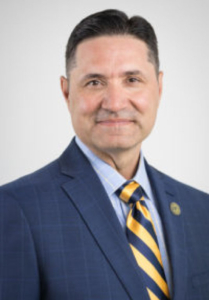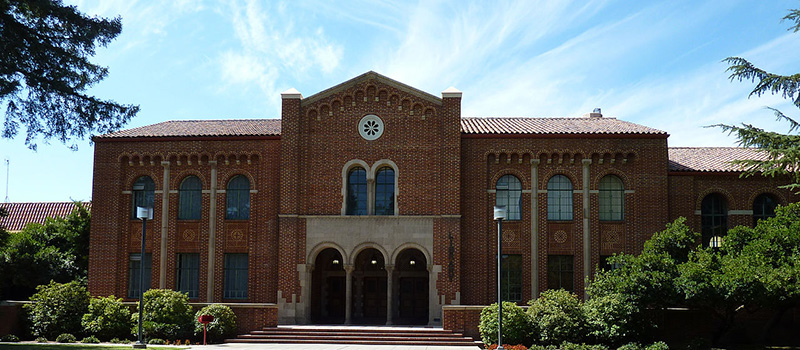The son of immigrants from México has been given the job as the fourth chancellor of UC Merced, the youngest and fastest-growing of the UC’s 10 campuses.
 Dr. Juan Sánchez Muñoz, 53, whose appointment was approved by the University of California Board of Regents on Wednesday (May 20), returns to the UC family where he and his wife each earned bachelor’s and doctorate degrees.
Dr. Juan Sánchez Muñoz, 53, whose appointment was approved by the University of California Board of Regents on Wednesday (May 20), returns to the UC family where he and his wife each earned bachelor’s and doctorate degrees.
He served as president of the University of Houston-Downtown since 2017, where he launched the university’s largest capital campaign and oversaw increases in enrollment, retention and graduation rates. The campus has an enrollment of about 15,000.
He previously worked at Texas Tech University in Lubbock as a vice provost and senior vice president.
The chance to be “four hours from my mother” and closer to family was a draw,” said Muñoz.
His mother, who grew up in La Estancia, Zacatecas, México, never stepped inside a classroom. His father, who picked grapes in the Valley after arriving from León, Guanajuato, México, later settled in Los Angeles as a factory worker.
Muñoz remains the only one of six children to have earned a college degree. He is the youngest of three boys.
“What I learned from my parents is integrity, ethics to work hard and to understand your obligación to your family,” said Muñoz during a telephone interview from Houston on Thursday.
UC President Janet Napolitano praised Muñoz’s accomplishments as a “testament to the power and opportunities created by public higher education.
“I am certain he will build on his valuable experience to lead Merced, UC’s newest campus,” said Napolitano in a statement, “so that it continues to grow and thrive.”
News of Muñoz’s appointment was welcomed by Valley education leaders, including Fresno State President Joseph I. Castro, who spent time in a leadership position at UC Merced.
“His unique skill set and life experiences prepare him well for this vitally important leadership position,” said Castro. “Dr. Sánchez Muñoz and I have already begun discussing strategies to strengthen the partnership between UC Merced and Fresno State in service to the Central Valley and California.”
Benjamín Durán is executive director of the Central Valley Higher Education Consortium, a 27-member organization of accredited public and private colleges, universities, and community college district members in the San Joaquín Valley.
“I have received phone calls from colleagues who are very interested in welcoming him and supporting him and doing everything that we possibly can,” said Durán. “I think it is it is a wonderful, wonderful tribute that we now have two Latinos leading two of our leading institutions here in the Central Valley.
“I just think that it is a sign of the times. And they are both very, very, very well qualified and very, very good for their selections, obviously.”
John A. Pérez, the former state Assembly Speaker and now chair of the UC Board of Regents, said Muñoz’s experience and qualifications made him “an outstanding choice to lead UC Merced.”
“Add to that his passion for ensuring the success of all students, especially public school students from underrepresented and underserved communities, and it is clear that he is the perfect match for UC Merced as the campus moves forward on its impressive journey,” said Pérez in a press release.
Muñoz, a former Marine Corps sergeant, said it is up to UC Merced and other partners to improve educational attainment levels in the Valley that are stubbornly lower than most of the state.
A 2018 study showed that between 20 percent and 30 percent of adults over the age of 25 in the Valley did not have a high school diploma. That also results in overall lower average wages and income.
“If we fail to educate students in K-12, very few of them can matriculate to higher education,” he said.
Education, he said, is the only ticket out of poverty. Attorneys, doctors, anesthesiologists, many elected officials, bankers, investment officers, superintendents, and principals all have a higher education in common, he said.
“For me, it became very important to make a contribution to working-class people and working-class families to continue their education, to improve not just their economic vitality but the impact they can make on their community, ” said Muñoz, who will assume his new position in July.
Muñoz, an all-league football defensive end at Salesian High School in L.A., will step into a job where higher education funding cuts are a certainty because of the coronavirus pandemic.
“I haven’t been read into the discussions that have taken place on campus, or relative to the budget,” said Muñoz. “So, speaking about those particular points at this time would be a bit premature.”
UC Merced, which opened in 2005, had an enrollment of 8,151 this school year with 55.5 per cent of them Latino. The university was designated an Hispanic Serving Institute in 2010, the second UC campus to get that status by having at least a 25 percent Latino enrollment.
The campus is expected to accommodate 10,000 more students after the completion of Merced 2020, a public-private partnership that will double capacity.
Muñoz earned his bachelor’s degree in psychology at California State, Fullerton; a bachelor’s in psychology from UC Santa Bárbara; a master’s in Mexican-American Studies at Cal State Los Angeles; and, a doctorate of philosophy from UCLA.
He has worked as a secondary school teacher, community college adviser, and, instructor.
Muñoz succeeds Dorothy Leland, whose mother was Latina, as chancellor. He becomes only the third Latino to serve as chancellor at a UC campus.
Muñoz’s wife is Dr. Zenaida Aguirre-Muñoz, another first-generation college graduate. She is an associate professor of psychology, health, and learning sciences of the University of Houston.
The couple has three sons.
The regents approved his salary at $425,000.
Original story can be found at:https://www.mercedsunstar.com/news/local/education/uc-merced/article242908566.html




